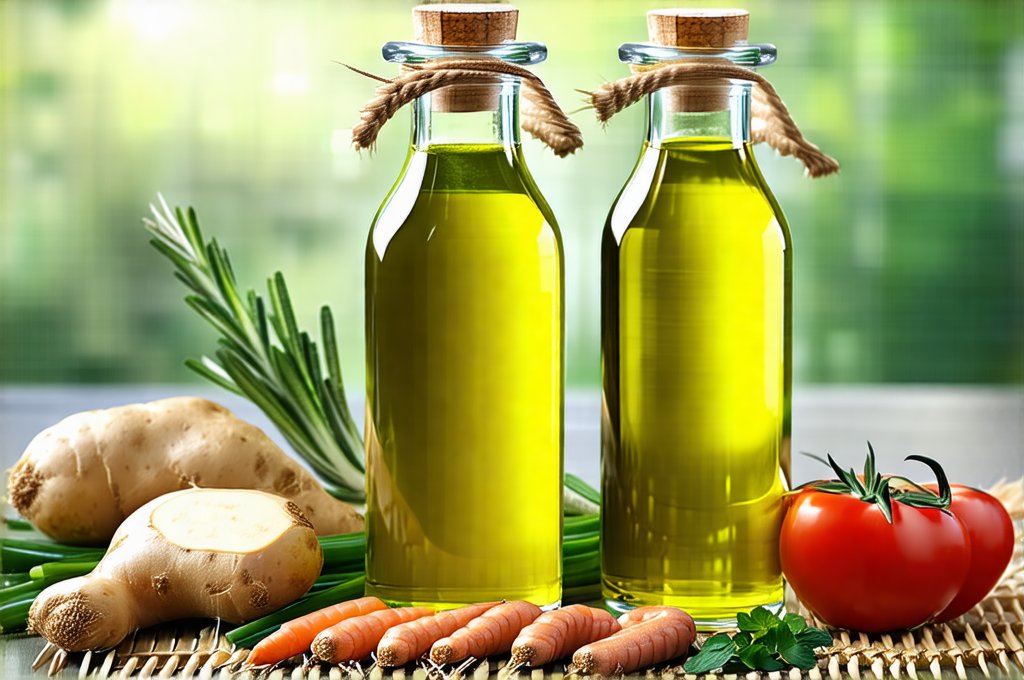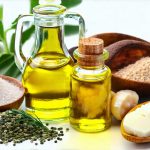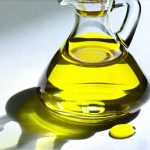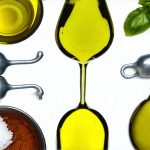The realm of dietary fats and oils is often shrouded in complexity and conflicting information. We’re bombarded with messages about ‘good’ fats versus ‘bad’ fats, saturated versus unsaturated, omega-3s versus omega-6s—it can feel overwhelming. However, a more nuanced understanding lies in how these fats digest within our bodies, specifically focusing on those that minimize fermentation in the gut. Fermentation, while naturally occurring and sometimes beneficial (think yogurt or kimchi), can also lead to digestive discomfort like bloating, gas, and overall intestinal distress if excessive or involving less desirable microbial activity. This article will delve into the specific fats and oils that are generally well-tolerated because they require minimal fermentation during digestion, focusing on their composition and characteristics. Understanding this allows for more informed dietary choices and potentially improved gut health.
The digestive process of fats is quite different from that of carbohydrates or proteins. It doesn’t begin in the mouth; rather, it primarily takes place in the small intestine with the aid of bile acids produced by the liver and pancreatic lipases. These enzymes break down triglycerides (the main component of dietary fat) into fatty acids and glycerol, which are then absorbed. The key difference regarding fermentation arises from the length of the fatty acid chains and their overall structure. Long-chain triglycerides often require more extensive breakdown, potentially leaving some undigested material for gut bacteria to ferment. Shorter-chain fats, medium-chain triglycerides (MCTs), and specific unsaturated fat compositions are generally easier to digest and absorbed with less fermentation byproduct production. This is crucial for individuals sensitive to fermentation or experiencing digestive issues. Dealing With Invisible Gut Pain That Comes and Goes can offer additional insights into managing these sensitivities.
Medium Chain Triglycerides (MCTs)
Medium chain triglycerides represent a particularly digestible group of fats due to their unique structure. Unlike long-chain triglycerides commonly found in most dietary fats, MCTs contain fatty acids with shorter carbon chains – typically 6 to 12 carbons. This structural difference directly impacts how they’re processed by the body. Because of their smaller size, MCTs don’t require bile salts for absorption, meaning they are more easily absorbed directly into the bloodstream from the small intestine and less likely to remain in the colon where fermentation would occur. They effectively bypass some of the typical digestive processes associated with long-chain fats.
The sources of MCTs are relatively limited but include coconut oil (which is rich in lauric acid, a type of MCT), palm kernel oil, and occasionally butter from grass-fed cows contains small amounts. Caprylic acid and capric acid are the most prevalent MCTs with strong digestive benefits. Furthermore, MCTs are rapidly metabolized by the liver, providing quick energy without being stored as easily in fat tissues. This rapid metabolism further minimizes residue available for fermentation. It’s important to note that while generally well-tolerated, introducing large amounts of MCT oil too quickly can sometimes lead to temporary digestive upset; starting with small doses and gradually increasing is advisable. Top Cooking Oils That Are Safe For Acid Reflux Diets can help you choose the right oils for your diet.
MCT oil itself is a concentrated source of these beneficial fats – often extracted from coconut oil through fractionation processes. This concentration allows for targeted use in specific dietary strategies. The lower fermentation potential of MCTs makes them valuable for individuals following low-FODMAP diets or those experiencing issues like irritable bowel syndrome (IBS) where minimizing gut fermentation is key to symptom management. They are also sometimes used by athletes for quick energy boosts due to their efficient metabolism.
Understanding Fatty Acid Profiles & Digestibility
The digestibility of fats isn’t solely determined by chain length, but also by the specific fatty acid profiles within them. Saturated fats, often demonized in popular diet culture, are relatively stable and don’t easily undergo fermentation themselves. However, their high density can sometimes slow down digestion overall, potentially increasing time available for other components to ferment. Monounsaturated fats (MUFAs) and polyunsaturated fats (PUFAs) have varying degrees of digestibility depending on their specific structure and the presence of essential fatty acids like omega-3s.
The key lies in avoiding highly processed oils with altered structures or trans fats, which can be difficult to digest and potentially promote inflammation. Cold-pressed, unrefined oils generally retain more of their natural composition and are therefore easier for the body to process. Furthermore, the ratio of omega-6 to omega-3 fatty acids is important; an imbalance favoring omega-6s can contribute to inflammatory processes in the gut. Choosing fats that provide a good balance or prioritizing omega-3 rich sources contributes to overall digestive health. Healthy Oils and Fats For The Gut provides a deeper dive into this topic.
The Role of Bile Acids & Pancreatic Lipase
As mentioned earlier, effective fat digestion relies heavily on bile acids produced by the liver and pancreatic lipase released from the pancreas. Bile acids emulsify fats, breaking them down into smaller droplets so that lipase can effectively access and digest them. Insufficient bile acid production or impaired pancreatic function can lead to incomplete fat digestion, resulting in more undigested fat reaching the colon and increasing the likelihood of fermentation.
Conditions like gallbladder issues or chronic pancreatitis can significantly impact this process. Supporting healthy liver and pancreatic function through a balanced diet, adequate hydration, and minimizing stress are essential for optimal fat digestion. Additionally, some individuals may benefit from incorporating digestive enzymes containing lipase with their meals to aid in fat breakdown, especially if they suspect insufficient natural production. Are Some Cooking Oils Easier To Digest explores options for easier digestion.
Considerations For Sensitive Individuals
For those particularly sensitive to fermentation or experiencing chronic digestive issues, a cautious approach is vital when introducing new fats and oils. Food diaries can be incredibly helpful for identifying trigger foods and understanding individual tolerance levels. Starting with small quantities of easily digestible fats like MCT oil or avocado oil and gradually increasing intake while monitoring symptoms is recommended.
Pay attention to the form in which you consume these fats: liquid oils are often better tolerated than solid fats, as they require less effort from the digestive system. Avoiding fried foods, which can be difficult to digest due to their high fat content and processing methods, is also beneficial. Finally, pairing fats with other easily digestible foods and ensuring adequate hydration can further support optimal digestion and minimize fermentation. Remember that everyone’s gut microbiome and digestive capabilities are unique, so personalized experimentation is often necessary to determine the best approach. Foods That Calm The Stomach And Reduce Acidic Irritation can help you build a diet that supports your digestive health and GERD and Persistent Phlegm With No Cold or Flu provides insight into related conditions.


















